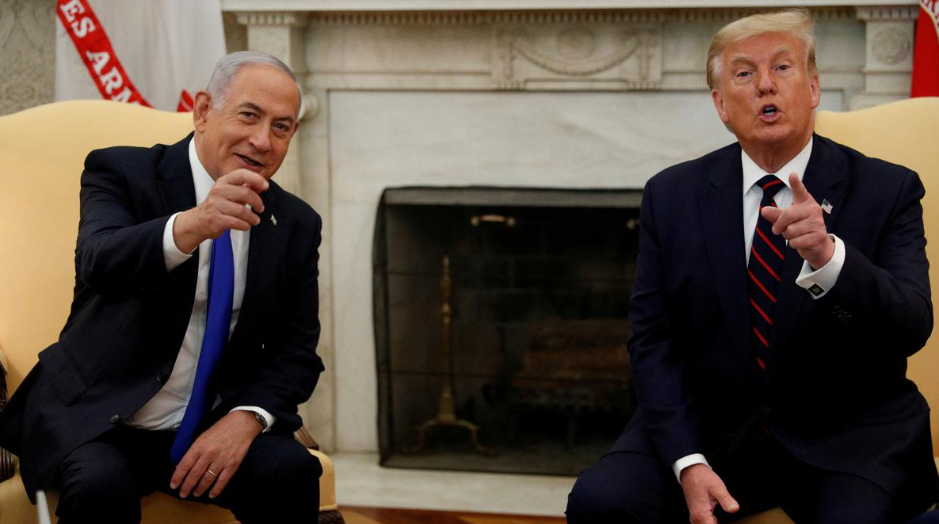A West Asia under Donald Trump (GS Paper 2, IR)

Context
- The recent events in West Asia, particularly the October 7, 2023 Hamas attack on Israel, have thrust the region back into the global spotlight.
- U.S. President Joe Biden has been accused of ineffectiveness in managing the escalation, particularly in Gaza.
- As Biden's tenure nears its end, the situation in the region has become more complicated, and questions remain about how his successor, Donald Trump, might approach the ongoing conflict and broader Middle Eastern dynamics.
Biden’s Approach to West Asia and Its Fallout
When Hamas launched its attack in October 2023, President Biden immediately threw U.S. support behind Israel, which responded with significant military action in Gaza. Biden's strategy was twofold:
- Support Israel's war efforts.
- Use diplomacy to prevent the escalation of conflict into a broader regional war.
Despite these efforts, the situation only worsened. The death toll in Gaza rose sharply, with over 43,000 Palestinians killed by the following year. The war spread to Lebanon, and Israel clashed with Iran-backed Hezbollah. Meanwhile, the U.S. found itself embroiled in an expanding conflict.
Critics of Biden's policy accused him of complicity in the "genocide" against Palestinians, arguing that his diplomatic efforts to prevent broader conflict were ineffective. By the end of Biden's term, America's reputation in the region had suffered, and the situation remained precarious.
Trump’s Record and Likely Approach
Donald Trump’s foreign policy in the Middle East was decisive and pro-Israel. Key highlights from his first term include:
- Relocation of the U.S. Embassy to Jerusalem — Recognizing Jerusalem as Israel's capital.
- Recognition of Golan Heights annexation — Acknowledging Israel’s control over Syrian territory.
- Withdrawal from the Iran nuclear deal (2018) — Despite Iranian compliance with the 2015 accord, Trump unilaterally pulled out of the deal, escalating tensions with Iran.
- Abraham Accords (2020) — Normalized relations between Israel and several Arab countries, including the UAE and Bahrain, aligning them against Iran.
Trump also proposed a "peace plan" for Israel-Palestine, which was criticized as heavily biased toward Israel, and rejected by the Palestinian leadership.
Given this record, Trump is unlikely to take a strong moral stand against Israel’s actions in Gaza or elsewhere. During his campaign for a second term, he made it clear that he stood firmly with Israel in its ongoing wars in the region.
Challenges for Trump in the Middle East
Should Trump return to the presidency, he faces several challenges:
The Risk of Regional Escalation:
Like Biden, Trump would likely support Israel's defense in Gaza and against Hezbollah. However, he would want to avoid U.S. involvement in a wider regional war. Two key factors would likely influence his stance:
- Political Pressure: Trump’s domestic base is highly skeptical of U.S. involvement in endless Middle Eastern wars, especially given the public disillusionment with the Iraq War.
- Geopolitical Rivalries: Trump may prioritize a focus on China—his primary strategic rival—over engaging in prolonged conflicts in the Middle East. A war with Iran, in particular, would be counterproductive to this goal.
Economic Considerations:
- Trump's economic priorities—notably, addressing the cost of living crisis—would make a regional war in West Asia highly undesirable.
- A conflict, particularly one involving Iran, could disrupt oil supplies through the Strait of Hormuz, leading to inflationary pressures that would harm the U.S. economy.
The Way Forward:
To restore stability in the region, Trump will need to balance his pro-Israel stance with the necessity of de-escalating tensions. His focus would likely be on:
- Preventing an all-out regional war: Given the instability, Trump might try to contain the Gaza conflict and avoid further military entanglement.
- Restoring America’s position in the region: If Trump can engage more effectively with regional partners—especially Arab states—and foster regional stability, he may restore America's influence in the region, which Biden’s policies have weakened.
Conclusion:
- While the U.S. remains the dominant power in West Asia, Israel’s ongoing wars and unilateral actions have damaged America’s standing in the region.
- If Trump continues his pro-Israel policies without adjusting to the new dynamics in Gaza and Lebanon, the region could descend further into chaos.
- However, if he can make the right strategic adjustments, he may avoid the traps of regional conflict while still supporting Israel's security, stabilizing the region, and maintaining his broader geopolitical focus on China.
- Trump’s approach to West Asia will depend on whether he can reassess his priorities and look beyond immediate military engagements, taking a more long-term and balanced strategic view.


